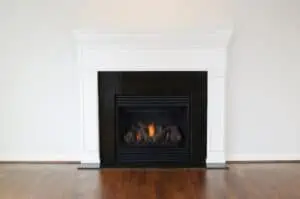Why Does My Propane Fireplace Smell?
If you have a propane fireplace and have been experiencing a gas smell, there are some things you should know. A gas leak can be a serious and potentially dangerous problem, so it’s important to have the issue addressed by a professional.
(Looking for a “fireplace tile installer“? Contact us Today!)

The fuel your propane fireplace uses is a blend of liquid propane and air. It is a safe and relatively easy-to-install alternative to natural gas, which may be more common in your area. Propane is also a great option for homes without gas lines, and can be used in areas where the cost of installing gas is prohibitive.
One of the major benefits of propane is that it is a cleaner burning fuel than traditional wood-burning fireplaces. As a result, it requires less frequent cleaning and maintenance than a wood-burning fireplace.
It is also more efficient than wood-burning appliances because it heats a room faster and more evenly, reducing energy costs and the risk of overheating your home. It also cuts down on the amount of smoke, soot, and ash that can clog your chimney and pollute your living spaces.
Another benefit is that propane has a lower carbon footprint than wood-burning appliances. It uses significantly less carbon in its manufacturing process, resulting in lower emissions of greenhouse gases such as carbon dioxide and methane.
Many newer propane fireplaces feature an electric igniter rather than a standing pilot light, which is a great improvement for efficiency and safety. However, it is still a good idea to check your pilot and thermocouple for any gunk that might be blocking the flow of gas. If you can’t fix the problem, it could indicate a broken thermocouple or another problem that will need to be addressed by a professional.
Your fireplace needs to be able to produce enough heat to keep your living space warm and cozy. To get the best results, choose a unit with a government-approved rating for heat efficiency. The higher the BTU rating, the more heat a propane fireplace can produce.
Look for a fireplace that offers advanced controls that allow you to set your thermostat or adjust the amount of heat it delivers. Some units even have a built-in fan that circulates the heat around your living space.
You’ll want to choose a model that matches the theme and design of your home while providing functionality. The unit should also be UL-certified to meet your state’s fire code and regulations.
It’s always a good idea to have a gas detector installed near the fireplace, especially in older or poorly insulated homes. The gas detector will alert you if it detects any traces of natural gas, which could be a sign of a gas leak.
The most common reasons for a propane fireplace to smell are air quality issues and gas leaks. Regardless of the source, it’s important to address them immediately and ensure that your home is adequately ventilated.
If you are experiencing a gas smell from your fireplace, you should shut off the main valve and open all doors and windows to allow for adequate ventilation. Then, call your local gas company or the fire department to report the leak and have it repaired by a qualified professional.

